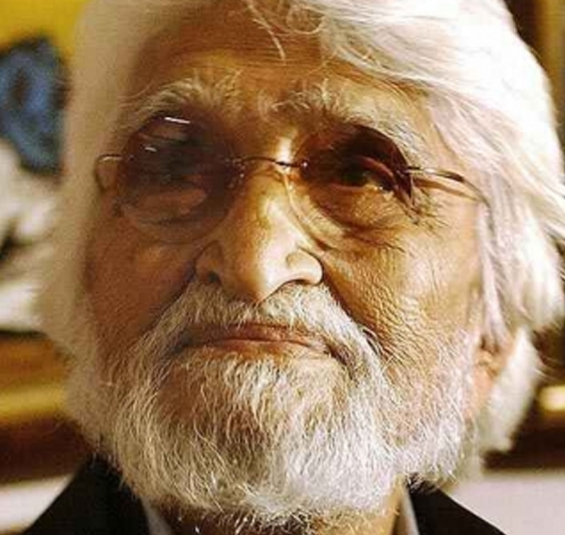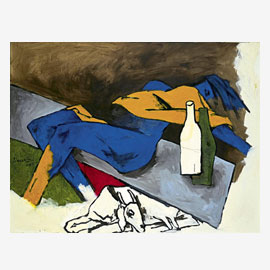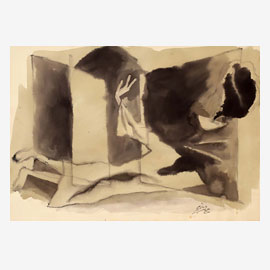Maqbool Fida Husain was born in 1913 in Pandharpur, Maharashtra. A self-taught artist, he came to Mumbai in 1937, determined to become a painter. In 1948, he was invited by F N Souza to join the Progressive Artists ' Group. Husain began his career by painting billboards for feature films and making furniture designs and toys, to earn a living. His works are mostly inspired by the themes that blended folk, tribal and mythological art to create vibrantly contemporary, living art forms. His rise as a public figure had as much to do with his style and presentation, as it did with his themes. He depicted the icons of Indian culture, through the ages, seeking to capture the quintessence of his subjects, like Mother Teresa and the characters of epics like the Mahabharata.
MF Huss...
Maqbool Fida Husain was born in 1913 in Pandharpur, Maharashtra. A self-taught artist, he came to Mumbai in 1937, determined to become a painter. In 1948, he was invited by F N Souza to join the Progressive Artists ' Group. Husain began his career by painting billboards for feature films and making furniture designs and toys, to earn a living. His works are mostly inspired by the themes that blended folk, tribal and mythological art to create vibrantly contemporary, living art forms. His rise as a public figure had as much to do with his style and presentation, as it did with his themes. He depicted the icons of Indian culture, through the ages, seeking to capture the quintessence of his subjects, like Mother Teresa and the characters of epics like the Mahabharata.
MF Hussain’s paintings are pretty much like his life and persona – full of energy, flux, fermentation, always topsy-turvy, restless, edgy, never static. Husain’s theme mainly comprised of a bizarre and riotous world of Hindu Gods and Goddesses, characters from the ancient Indian epics of Ramayana and Mahabharata along with images of Indian rivers, festivals, cities and symbols of modern Indian pop culture.
In a career that spanned seven decades, Husain also made feature films, such as Through the Eyes of a Painter, in 1967, which was a Golden Bear Award winner at the Berlin Film Festival, and Gajagamini in 2000. The Government of India honoured him with the Padma Bhushan and the Padma Vibhushan awards, both prestigious civilian awards.


